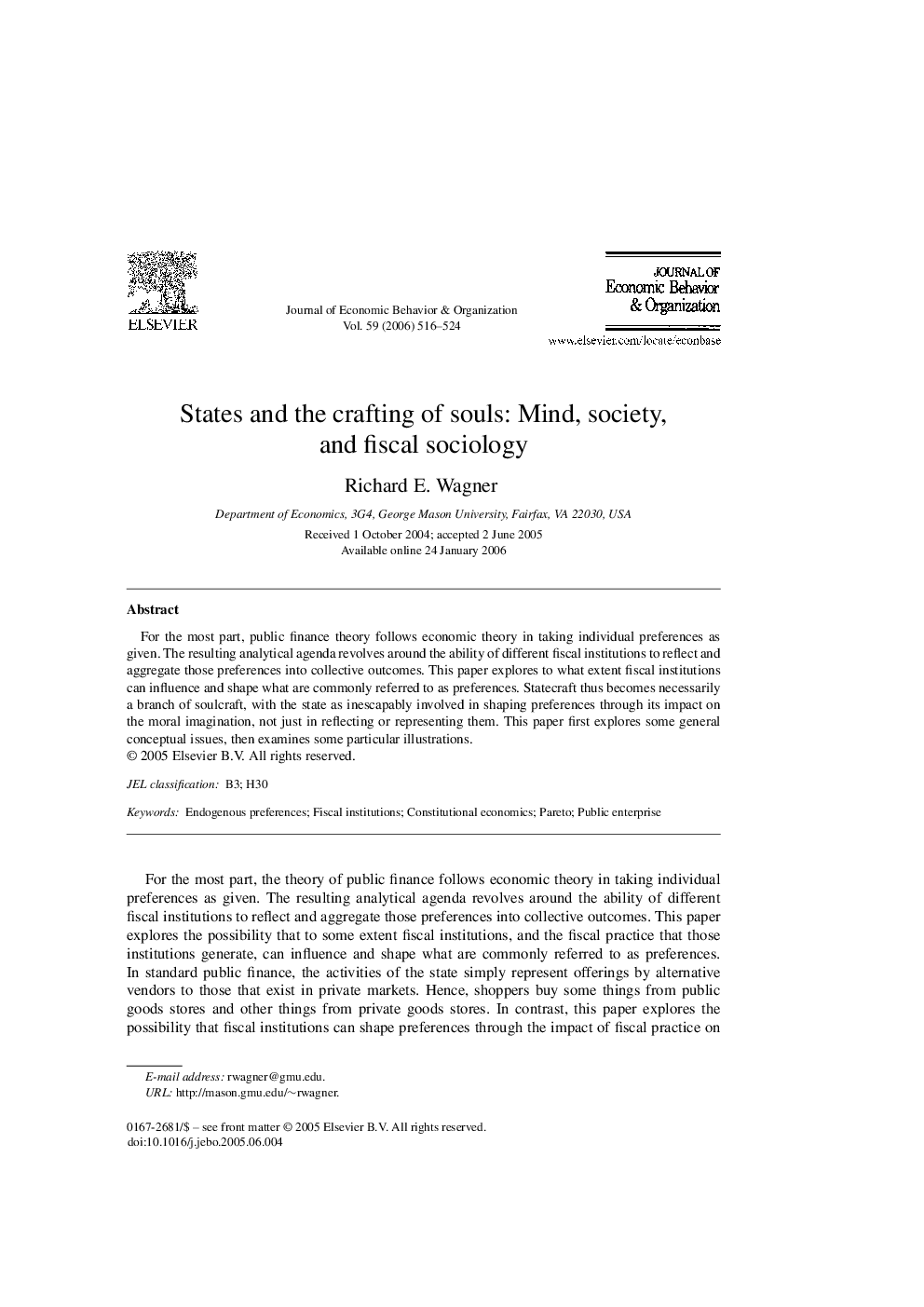| Article ID | Journal | Published Year | Pages | File Type |
|---|---|---|---|---|
| 884857 | Journal of Economic Behavior & Organization | 2006 | 9 Pages |
Abstract
For the most part, public finance theory follows economic theory in taking individual preferences as given. The resulting analytical agenda revolves around the ability of different fiscal institutions to reflect and aggregate those preferences into collective outcomes. This paper explores to what extent fiscal institutions can influence and shape what are commonly referred to as preferences. Statecraft thus becomes necessarily a branch of soulcraft, with the state as inescapably involved in shaping preferences through its impact on the moral imagination, not just in reflecting or representing them. This paper first explores some general conceptual issues, then examines some particular illustrations.
Keywords
Related Topics
Social Sciences and Humanities
Economics, Econometrics and Finance
Economics and Econometrics
Authors
Richard E. Wagner,
